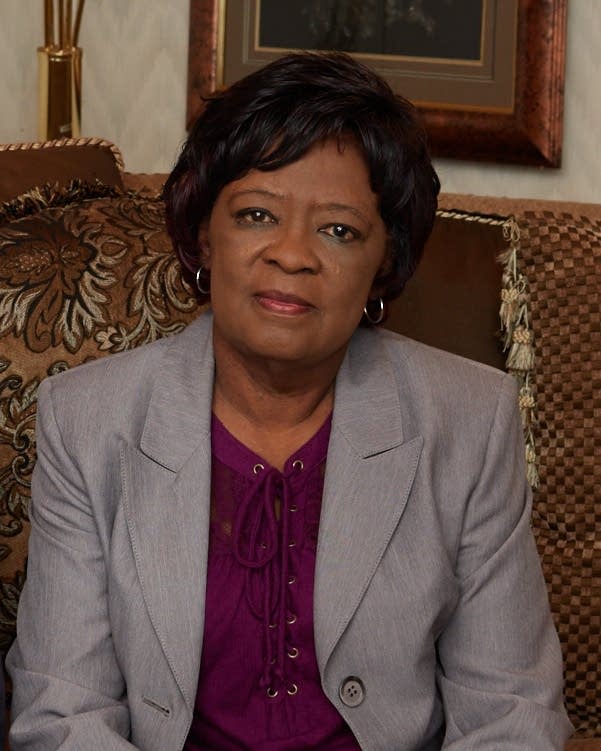For the last episode of the season, we went to meet Jeffery Armstrong, who, a few years after Curtis Flowers first went to prison, found what might have been a key piece of evidence. What he found — and where he found it — offers hints that someone else may have committed the Tardy Furniture murders. Armstrong turned the evidence into the cops. And then, he says, it disappeared.
July 3, 2018
There are two separate, side-by-side efforts unfolding to prevent Curtis Flowers from being executed. One is a direct appeal of his conviction, and the other is a request for post-conviction relief. It's quite possible that new information discovered by reporters for "In the Dark" could make a difference in the outcomes of both.
The "In the Dark" findings most likely to be significant are the revelation that the state's only piece of direct evidence was a lie — that Odell Hallmon has said his testimony about Flowers' confession was false and that he provided it in exchange for leniency from Doug Evans on his own crimes; that Willie James Hemphill was pursued as an alternate suspect in the days after the Tardy Furniture murders and that prosecutors may have failed to turn over records about it; and that an exhaustive jury analysis by APM Reports found that in Evans' 26-year tenure as district attorney, his office has struck black prospective jurors at 4.4 times the rate it struck white ones.
Flowers' lawyers are working on a direct appeal of the guilty verdict in his sixth trial, in June 2010. The effort, now eight years old, is in its final stage. In 2014, the Mississippi Supreme Court — which had shifted to the right since it reversed Flowers' third conviction in 2007 — upheld his conviction.
In 2016, the U.S. Supreme Court threw out the state's 2014 decision and ordered the Mississippi Supreme Court to consider the case again in light of a recent SCOTUS ruling in Foster v. Chatman, which dealt with race in jury selection. In 2017, the Mississippi Supreme Court reviewed the case a second time and upheld the conviction again.
In a final attempt to get the conviction overturned on direct appeal, Flowers' attorneys are presenting their case once more to the U.S. Supreme Court. In June, they filed a Petition for a Writ of Certiorari, which asks the High Court to look at the case again. In their brief, Flowers' lawyers point to Doug Evans' record of using race in jury selection and cite Odell Hallmon's statements to "In the Dark" that his testimony in Flowers' trials was false.

In the prosecution's telling, Curtis Flowers took a rather circuitous route to commit the Tardy Furniture murders in 1996. Prosecutors say he walked from his house to steal a gun, walked back to his house, and then downtown to Tardy's. After committing the murders, they say, Flowers headed west from downtown, back to his house. The place where Jeffery Armstrong found a gun, in 2001, isn't along this route. It lies east of downtown, the exact opposite direction from where the prosecution claims Flowers fled. On the map below, you can see three routes: the prosecution's version, the alternative path to where a gun was found, and Flowers' alibi.

In June, Curtis Flowers' attorneys filed an appeal with the U.S. Supreme Court. Their brief focuses on the critical question of whether the prosecutor in the case, Doug Evans, unconstitutionally struck black prospective jurors because of their race.
Flowers' lawyers point to the two instances in the 21-year-long legal drama when judges have already found that Evans excluded jurors because of race — the first during jury selection in Flowers' second trial, the other when the Mississippi Supreme Court overturned Flowers' third conviction. They remind the court that the jury that sentenced Flowers to death in his sixth trial, which was selected from a pool of people that was 42 percent black, the one had only one African-American on it.
But they also point to something bigger: the fact that over his long history as district attorney, Evans and his assistant prosecutors have struck black prospective jurors at a much higher rate than their white counterparts, even more so in capital cases. Based on the race data APM Reports collected over Evans' 26-year tenure, 75 percent of defendants tried have been black, but 68 percent of jurors who have sat in judgment were white. Evans may say he has race-neutral reasons for striking black prospective jurors, but Flowers' attorneys contend that the court should consider Evans' track record when judging whether his reasons for striking jurors were credible. In other words, they argue, history matters.

History can matter a great deal in Mississippi. The troubled legacy of white men standing in judgment of black men, especially in death penalty cases, extends much further back than 26 years and much wider than one court district. It's long been dangerous to be a black man accused of a crime in the American South.
Lola Flowers, who devoted the last two decades of her life to faithfully supporting her son Curtis, died on July 14, 2018, at a hospital in Greenwood, Mississippi.
Flowers, 70, had been admitted after experiencing a sudden decline in health. Her daughter, Priscilla, said her mother died after suffering complications from surgery.


Natalie Jablonski
Rehman Tungekar
Parker Yesko
Will Craft
Dave Mann
Andy Kruse
Catherine Winter
Chris Worthington
Gary Meister
Johnny Vince Evans
Corey Schreppel
